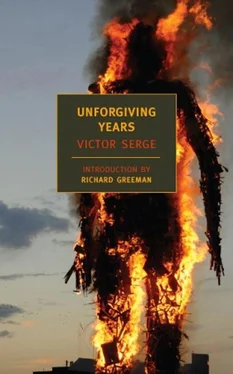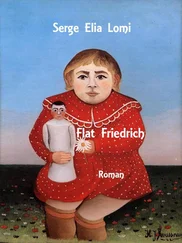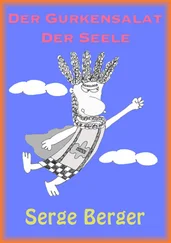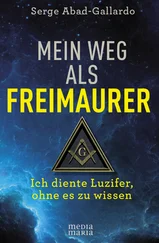Don Gamelindo, taking his leave, said humbly to Noémi, “If the Señora is considering selling her land, there’s no one who would offer her a better price than myself.”
“What are you talking about?” said Noémi, vaguely frightened.
“The Señora is not selling anything,” said Doña Luz, squaring her thin shoulders.
Don Gamelindo kissed both women’s hands: the strange white hand, the old brown hand. He swung into the saddle, saluted the onlookers with a gallant wave of his sombrero, reared his silver-studded mount, and made off at a high-stepping trot… The land will be sold off one day or another! I have plenty of time… Life is patience, money is patience, the land is patience! Adios …
Mr. Brown left one hour later, at nightfall. Harris and Monica walked with him as far as the road. A thin crescent moon was rising over the transparent lake. Harris, trying to be friendly, asked, “Will you be returning to Las Calaveras, Mr. Brown? You’d be most welcome at our place… It’s not as comfortable as here, but…”
“I don’t think so,” Mr. Brown replied in a feeble voice. “Anyhow, my work here is done.”
“The main thing is to get your strength back Señor… Adios , Señor,” said Monica with emotion.
Mr. Brown let up on the clutch. The headlights projected their objective glare over the hellish little stone piles.
Harris enclosed Monica — softly resisting — in his arms. The crescent moon shimmered twice, in the sky and in the water. “Monica,” he said in a deep, unknown voice, “Monica.” The young woman felt, as never before, that he loved her. A pulsing surge of joy spread throughout her being. She saw his face disfigured by suffering, and lifted her own broad, dull, massive face toward it in calm exaltation. “If you want to cry, Harris, go ahead and cry… It helps.” She felt a flash of anger harden him. “Me, cry? Are you kidding?”
Mexico, 1946
About the Author and the Translator
VICTOR SERGE (1890–1947) was born Victor Lvovich Kibalchich to Russian anti-Czarist exiles, impoverished intellectuals living “by chance” in Brussels. A precocious anarchist firebrand, young Victor was sentenced to five years in a French penitentiary in 1912. Expelled to Spain in 1917, he participated in an anarchosyndicalist uprising before leaving for Russia to join the Revolution. Arriving in 1919, after a year in a French concentration camp, Serge joined the Bolsheviks and worked in the press services of the Communist International in Petrograd, Moscow, Berlin, and Vienna. An outspoken critic of Stalin, Serge was expelled from the Party and jailed in 1928. Released, he managed to publish three novels ( Men in Prison , Birth of Our Power , and Conquered City ) and a history ( Year One of the Russian Revolution ) in Paris. Arrested again in Russia and deported to Central Asia in 1933, he was allowed to leave the USSR in 1936 after international protests by militants and prominent writers like André Gide and Romain Rolland. Using his insider’s knowledge, Serge published a stream of impassioned, documented exposés of Stalin’s Moscow show trials and machinations in Spain which went largely unheeded. Stateless, penniless, hounded by Stalinist agents, Serge lived in precarious exile in Brussels, Paris, Vichy France, and Mexico City, where he died in 1947. His classic Memoirs of a Revolutionary and his great last novels, Unforgiving Years and The Case of Comrade Tulayev (the latter also published by NYRB Classics), were written “for the desk drawer” and published posthumously.
RICHARD GREEMAN, the translator of four of Victor Serge’s novels, has written a doctoral dissertation about Serge along with numerous other studies of his work and life. A collection of Greeman’s political essays, Dangerous Shortcuts and Vegetarian Sharks , appeared in 2007. More of his work can be found at www.richardgreeman.org.
NONFICTION
Memoirs of a Revolutionary
The Year One of the Russian Revolution
FICTION
Birth of Our Power
The Case of Comrade Tulayev
Conquered City
The Long Dusk
Men in Prison
Midnight in the Century
Copyright and More Information

THIS IS A NEW YORK REVIEW BOOK
PUBLISHED BY THE NEW YORK REVIEW OF BOOKS
435 Hudson Street, New York, NY 10014
www.nyrb.com
Copyright © 1971 by The Victor Serge Foundation
Translation copyright © 2008 by Richard Greeman
All rights reserved.
Cover image: Antony Gormley, Waste Man, 2006, presented as part of The Margate Exodus, a film by Penny Woolcock, commissioned and produced by Artangel, 2006; courtesy of the artist and Jay Jopling / White Cube; photograph by Thierry Bal
Cover design: Katy Homans
Library of Congress Cataloging-in-Publication Data
Serge, Victor, 1890–1947.
[Années sans pardon. English]
Unforgiving years / by Victor Serge ; translated and with an introduction by Richard Greeman.
p. cm. — (New York Review Books classics)
ISBN-13: 978-1-59017-247-6 (alk. paper)
ISBN-10: 1-59017-247-7 (alk. paper)
I. Greeman, Richard. II. Title.
PQ2637.E49A813 2007
843’.912—dc22
2007029479
eISBN 978-1-59017-427-2
v1.0
For a complete list of books in the NYRB Classics series, visit www.nyrb.comor write to:
Catalog Requests, NYRB, 435 Hudson Street, New York, NY 10014
1. Paul Morelle, “ Les Années sans pardon de Victor Serge ,” Le Monde , September 3, 1971, p. 11.
2. All quotations from Serge’s Memoirs of a Revolutionary (Oxford University Press, 1963), an indispensable introduction to twentieth-century revolutionary politics for readers who don’t want to die asphyxiated by political correctness. With close-up sketches of Lenin, Trotsky, and the Bolsheviks; anarchists like Voline, Bill Haywood, Emma Goldman; and poets like Alexander Blok, Andrei Biely, Sergei Esenin, and Vladimir Mayakovsky.
3. Jim Haberman first asked this question twenty years ago in the title of his Voice Literary Supplement article on Serge (November 30, 1984).
The name Kibalchich is famous in Russia because of a distant relative of Victor’s father, the Narodnik N. I. Kibalchich, who was hanged in 1881 for his participation in the assassination of Czar Alexander II.
5. See Victor Serge, Revolution in Danger: Writings on Russia 1919–1921 , translated by Ian Birchall (London: Redwords, 1997).
6. Cronstadt later became a bone of contention between Serge and Trotsky in exile.
7. I first identified “R. Albert” as Serge’s pseudonym in the archives of Inprokorr on the basis of his style. These articles have been collected and translated by my colleague/comrade Ian Birchall in Witness to the German Revolution (London: Redwords, 1997).
8. I was privileged to know Vlady from 1963 until his death in 2005, and he is the source of much of my information about his father. His 2,000 square meters of murals, which reflect Serge’s politics and aesthetics, can be seen in Mexico City and on the Web site www.vlady.org.
Читать дальше













